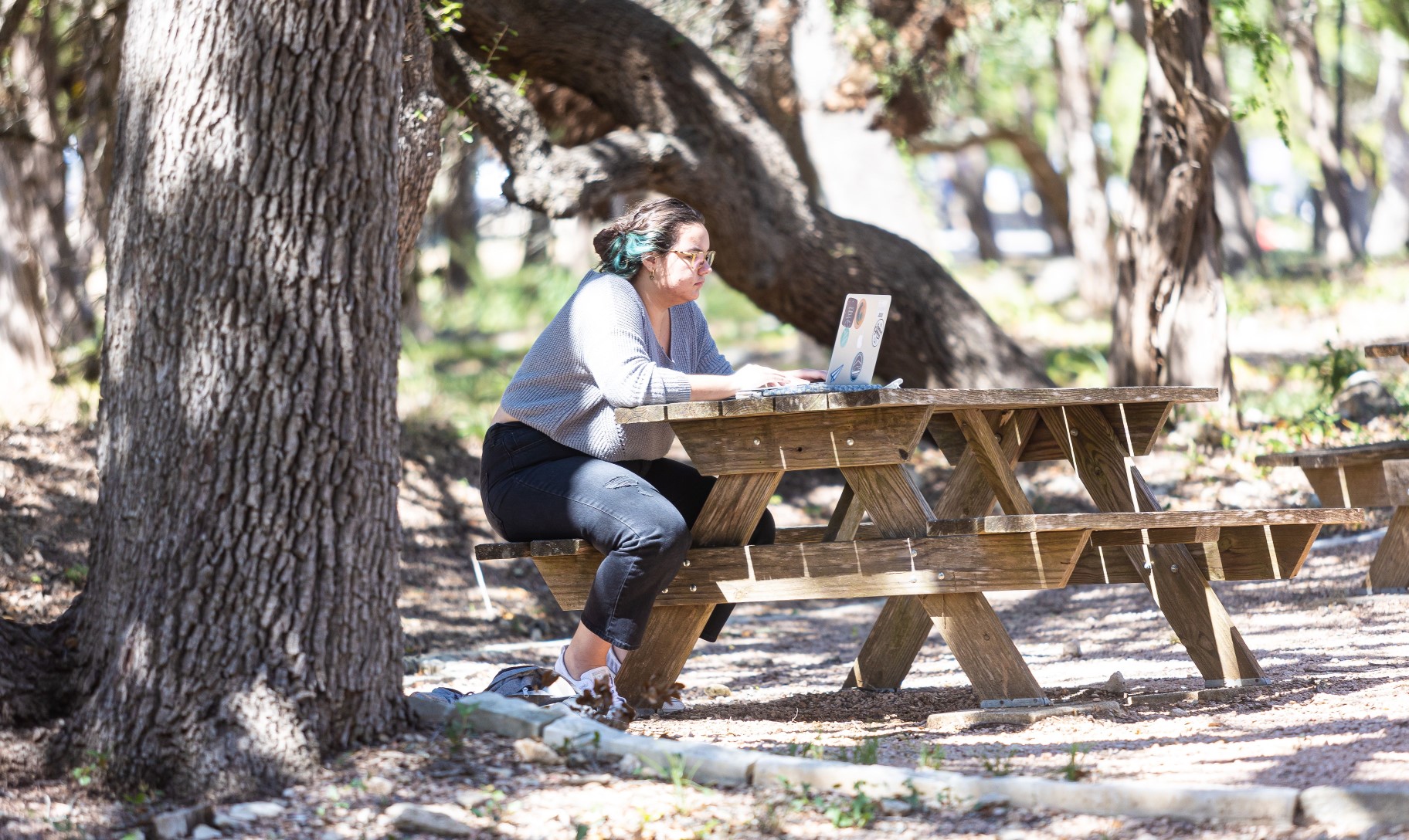Our licensed counseling staff provide supportive, confidential, and goal-directed counseling for you to explore your concerns and improve your overall wellbeing.
Counseling is available to ALL enrolled CTX students that are in the state of Texas. Counselors will attempt to connect out of state students to resources where they are located.
Students may seek counseling for many concerns including anxiety, depression, adjustment to university, relationships, stress, trauma, substance use, body image, self-worth, and academic stressors. Concordia Counseling offers traditional in-person and virtual sessions.
If you are interested in signing up for counseling, please click here.
Mondays 10:00-12:00 Building D, Office 110
Wednesdays 10:00-12:00 Building D, Office 106
- No appointments necessary
- No need for intake paperwork prior to meeting with a counselor
- 30 minute sessions
Counseling Center
Here for you
Counseling Resources
Our Counseling Center offers a variety of resources for students and their families. Visit the referral sources page for more information.
Counseling Resources
Counseling Center Staff
The compassionate team at the Concordia Counseling Center provides support to help students manage emotions, navigate relationships with others, and perform better academically. Meet this caring team of counseling professionals.
Counseling Center Staff
Screening for Mental Health
Early screening for mental health concerns can improve diagnosis and treatment for students ensuring they can thrive during their academic journey. Learn more about this anonymous and confidential resource.
Screening for Mental HealthCounseling Center Contact Info
To schedule an appointment, email counseling@concordia.edu or call 512-313-5032.
If you have a question, concern, or complaint please click here
-
Appointments
Please complete the intake forms and request an appointment as described below. A counselor will follow up with you once your materials are received. If you are in immediate crisis, please call 911 or seek medical attention at the nearest emergency room.
- Complete the intake forms
- Appointment request may be made by emailing counseling@concordia.edu.
- Effort is made to schedule an initial appointment within the week of your request.
-
Hours & Location
General Hours
Monday-Friday 8:00 AM-4:00 PMCounseling Drop-in Hours
Mondays 10:00 AM - 12:00 PM (A.118)
Wednesdays 10:00 AM - 12:00 PM (A.115)To schedule appoints at other times, email counseling@concordia.edu or call 512-313-5032
Unavailable most major holidays.
If you are in immediate crisis, please call 911 or seek medical attention at the nearest emergency room.
CTX Counseling Services
Building A
11400 Concordia University Dr.
Austin, TX 78726
Phone: 512-313-5032 -
FAQs
Who can use counseling services and how much does it cost?
Counseling Services are included in the tuition and fees. There is no additional charge.
Counseling is available to ALL currently enrolled CTX students that are in the state of Texas. Counselors will attempt to connect out of state students to resources where they are located. Couples Counseling is available when both students are enrolled at Concordia University
When there is a high demand for counseling services, students will be prioritized by the urgency of their situation and the level of care required.
What can I expect from counseling?
You can expect someone who is genuinely interested in you as a person. We are here to walk alongside you and help you in developing a better understanding of the concerns or issues affecting your life. Your counselor will openly discuss anything you would like in counseling. Questions by your counselor will be focused on the present or on the future. Counselors have no magical powers and will not be able to solve your issues for you. Your counselor will work with you but will not do for you what you can do for yourself.
What are my responsibilities in counseling?
Your main responsibilities in counseling are to attend your regularly scheduled sessions, talk about what is concerning to you as openly and honestly as you can, and complete any tasks or "homework" assignments. You are expected to let your counselor know if you are unable to make it to a session in a timely manner. You are also expected to let your counselor know when your problems have been resolved as well as let your counselor know if you don't feel like you're making any progress.
What does confidentiality mean in counseling?
The confidentiality of what you tell your counselor is protected by Texas law, and no record of your counseling is made on academic records or job placement files. The CTX Counseling Center will not share information (including if students have visited the Counseling Center) with faculty, staff, parents, or other students on campus without your written permission. In rare circumstances (involving physical safety) there are a few limits to confidentiality. The details are provided to students in the Informed Consent (pdf) document.
What do I do if I'm worried about a friend?
If you are concerned about someone (including a fellow student) who's facing a problem, you can talk confidentially with a counselor about how you might help that individual. You may also complete an Early Alert Form which can be done anonymously.
How many counseling sessions will I get?
Initially a student will have an intake session and 4-6 additional sessions. If a student requires long term counseling, this will be discussed and an appropriate referral to a community clinician will be made. Any cost incurred at that time will be the student's responsibility.


